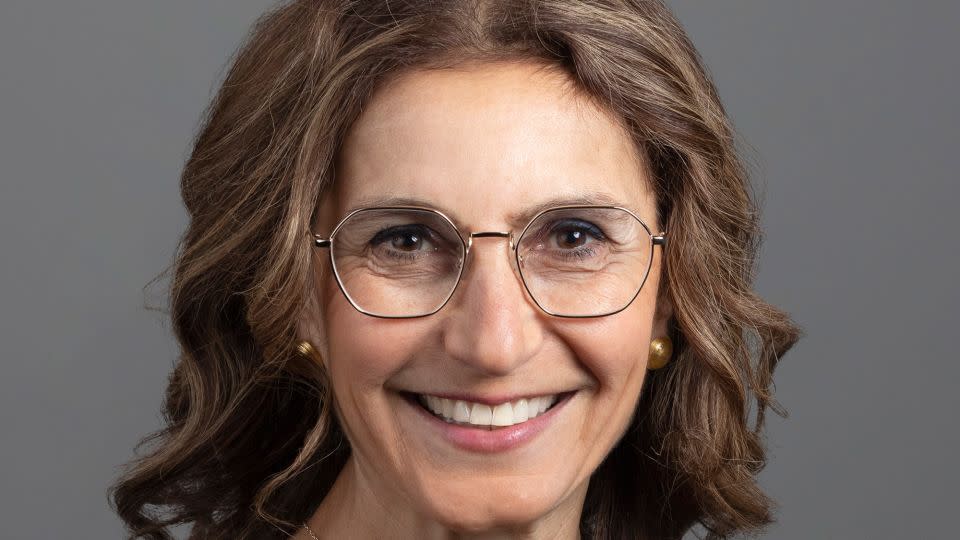Opinion: I see patients every day who need Ozempic and can’t get it

Editor’s Note: Jody Dushay, MD, MEd, MMSc is Assistant Professor of Medicine at Harvard Medical School and an attending endocrinologist at the Beth Israel Deaconess Medical Center in Boston, MA. The opinions expressed in this commentary are solely her own. View more opinion on CNN.
Top shelf medications for weight loss are out of reach for many. Millions have access only to medications approved decades ago.

As an endocrinologist who specializes in medical weight management, about a year ago, I started treating a patient with body weight of about 300 lbs (a body mass index above 50, though I acknowledge the flaws of this measurement), high blood pressure, high cholesterol, sleep apnea, depression and modestly elevated blood sugar (prediabetes).
We discussed that for many people, the most powerful tools for medical weight management are the glucagon like peptide 1 (GLP1) agonists. They work in the brain as well as in the “periphery,” meaning the stomach and the intestines, to reduce appetite. Metabolic and mental health comorbidities very often improve in individuals who take these medications. We had a good tool and we were hopeful.
Her insurance covered Ozempic, the diabetes drug that has become a popular off-label medication for weight loss, and I prescribed it even though she does not have type 2 diabetes. She has lost about 45 lbs in 10 months. Her blood pressure, cholesterol and blood sugar levels have all improved significantly. She is more active than she has been in years. She is less hungry, especially at night. She is sleeping better.
She has Medicare.
Previously, I could prescribe GLP1s approved for type 2 diabetes to Medicare patients who met the criteria for weight loss medication, even if they did not have diabetes. I’ve recently noticed that now, documentation of type 2 diabetes with notes and labs is required.
As of 2024, insurance, not body weight or BMI, has become the most important vital sign for doctors who see patients for medical weight management. Insurance now determines whether I can use Stanley or Playskool tools to construct a medical treatment plan for patients with obesity. Often, especially for Medicare patients, the toolbox is flimsy.
The GLP1 medications you can’t avoid hearing about — Wegovy, Ozempic, Mounjaro and Zepbound to name a few — are the state of the art power tools for medical weight management. They are not miracle drugs, and they have common and often severe side effects, but they are highly effective in many people. They really did transform a fairly barren landscape of pharmacotherapeutic options for medical weight management that lasted several decades.
Weight loss is on average about 15% with Wegovy and 22% with Zepbound, with super responders losing more than 25% of their body weight. By comparison, other medications that are FDA-approved for weight loss, including Qsymia and Contrave, are combinations of much older drugs. These medications are typically associated with much less weight loss, about 8-10% on average. In my own clinical experience, people usually lose much less than that.
Since Medicare will not pay for any medications with an FDA indication for weight loss (not even the oral agents Qsymia or Contrave), my prior ability to prescribe GLP1 agents approved for type 2 diabetes for some patients gave me access to those more powerful tools, which I tried to use thoughtfully for certain people with high body weight and several weight-associated comorbidities. Without that ability, millions of patients and doctors can choose only among a few old, generic medications to treat obesity. Very few of my patients can pay out of pocket for Wegovy or Zepbound, which can cost more than $1,000 per month.
There is more insult to add to this injury. Some people with obesity also have elevated blood pressure and cholesterol levels, both of which increase risk for heart disease and stroke. The newer medications for weight loss have been shown to reduce risk of cardiovascular disease while some of the generic medications available to those with Medicare increase blood pressure and are not recommended for people with advanced cardiovascular disease.
Back to my patient. It seems that the door that allowed me to prescribe GLP1s approved for type 2 diabetes for some patients without diabetes has been closed and locked. From what I’ve observed, appeals are not even being considered and patients were not even offered a short-term extension of therapy so they could investigate out of pocket costs or construct a different treatment plan with their doctors.
My patient is now taking a generic medication for weight loss with minimal effect on appetite. She has a very high quality diet and has increased her daily walks from 2 to 6 miles every day. Still, cravings have returned and some weight regain is already happening. It is a throwback treatment plan but the best we have right now.
Many patients have asked me if I can whisper sweet nothings to their insurance provider and give them an incorrect diagnosis of diabetes so they can get Ozempic. My answer: No, that is medical fraud. Some half joke that they should eat a lot of sugar so they cross the line from prediabetes to diabetes and can continue to get the medication. In what bitter health care universe do people with obesity want to get diabetes so they can access better medical care?
I am more comfortable discussing macronutrients than macroeconomics, but I do understand that the prices drug companies are currently charging for GLP1 agonists are so high that full coverage for all eligible individuals will bankrupt the health care system. Until lower prices can be negotiated, individuals who have been taking GLP1 receptor agonists with life-changing results should be granted extended coverage of these drugs. Abruptly and completely excluding these medications robs patients of optimal medicine and care.
For more CNN news and newsletters create an account at CNN.com


